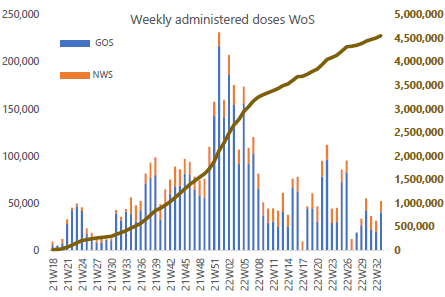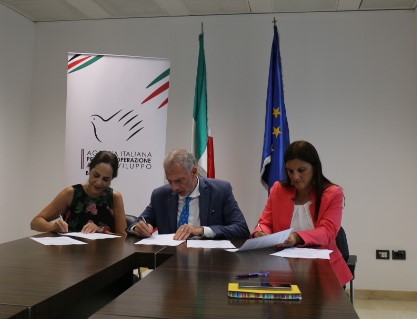 Dr Iman Shankiti, a.i. WHO Representative in Syria, Massimiliano D’Antuono, Chargé D’Affaires of the Italian Embassy in Damascus and Alessandra Piermattei, AICS Director for Lebanon and Syria26 October 2022, Damascus – Lending a humanitarian hand to protect the lives of the people of Syria, the Government of Italy has generously donated € 500 000 to support WHO’s response to the cholera outbreak in the country. This new fund aims at strengthening the capacity of 5 laboratories in affected governorates, thus enabling them to activate bacteriological testing and rapidly detect and identify epidemic diseases and outbreaks in hard-to-reach and high-risk areas.
Dr Iman Shankiti, a.i. WHO Representative in Syria, Massimiliano D’Antuono, Chargé D’Affaires of the Italian Embassy in Damascus and Alessandra Piermattei, AICS Director for Lebanon and Syria26 October 2022, Damascus – Lending a humanitarian hand to protect the lives of the people of Syria, the Government of Italy has generously donated € 500 000 to support WHO’s response to the cholera outbreak in the country. This new fund aims at strengthening the capacity of 5 laboratories in affected governorates, thus enabling them to activate bacteriological testing and rapidly detect and identify epidemic diseases and outbreaks in hard-to-reach and high-risk areas.
“The Italian contribution will enable WHO to support health authorities to meet the increasing health needs of the affected populations who have been repeatedly impacted by health emergencies, the latest of which is the cholera outbreak,” said Dr Iman Shankiti, a.i. WHO Representative in Syria. “Supporting labs, at the peripheral level, and enabling them to perform cholera testing, is crucial for reducing morbidity and mortality among Syrians, in addition to delivering a timely response to the impacted communities,” Dr Shankiti added.
“Italy stands together with Syrian people and is committed to supporting them in facing their emergencies and needs. This contribution is in line with our support to WHO in the country, following a contribution focused on COVID-19 testing and another on the operationalization of COVID-19 vaccines, together with the distribution of around 4 million vaccines early this year,” said Massimiliano D’Antuono, Chargé D’Affaires of the Italian Embassy in Damascus.
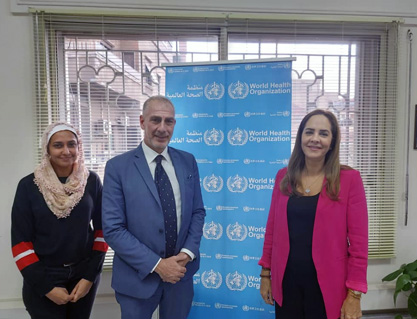 Dr Faiqa Kassim Ebrahim, Incident Manager, Cholera, Massimiliano D’Antuono, Chargé D’Affaires of the Italian Embassy in Damascus and Dr Iman Shankiti, a.i. WHO Representative in Syria“The contribution aims at preventing the spread of cholera more than has already been achieved. Providing timely sanitation supplies is critical to prevent and control the transmission of cholera and waterborne diseases. Only by providing for the tools, we can make sure that the country will be able to face future health emergencies," added Alessandra Piermattei, AICS Director for Lebanon and Syria.
Dr Faiqa Kassim Ebrahim, Incident Manager, Cholera, Massimiliano D’Antuono, Chargé D’Affaires of the Italian Embassy in Damascus and Dr Iman Shankiti, a.i. WHO Representative in Syria“The contribution aims at preventing the spread of cholera more than has already been achieved. Providing timely sanitation supplies is critical to prevent and control the transmission of cholera and waterborne diseases. Only by providing for the tools, we can make sure that the country will be able to face future health emergencies," added Alessandra Piermattei, AICS Director for Lebanon and Syria.
This new donation will enhance the capacity of 5 microbiological laboratories in the governorates of Damascus, Lattakia, Tartous, Homs, and Hama, which have been functioning with limited capacity to conduct confirmatory testing due to a shortage of essential equipment and testing tools. The fund will also enable the establishment of 5 new laboratories in other governorates without existing testing capacity, including Aleppo and Deir-ez-Zor, where the majority of cholera cases are reported.
On 22 October 2022, the Syria Ministry of Health reported a cholera outbreak in 13 of 14 governorates with a total of 44 deaths and 942 confirmed cases. Challenges on the ground are rapidly evolving due to the over-stretched health system, limited availability and accessibility of safe water, as well as an socioeconomic decline across the country.





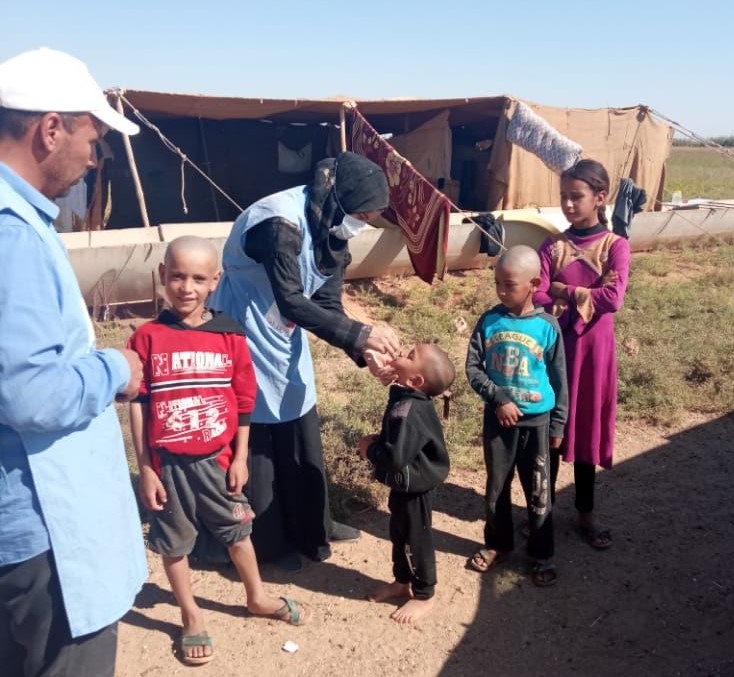 12 October 2022, Damascus – With support from WHO, UNICEF and Gavi, the Vaccine Alliance, the Ministry of Health in Syria has launched a polio, measles and rubella vaccination campaign across the country. The 10-day campaign, which began on 9 October 2022, aims to vaccinate 2.4 million children under the age of 5 in all Syrian governates, regardless of their vaccination status, with a special focus on camps and informal settlements.
12 October 2022, Damascus – With support from WHO, UNICEF and Gavi, the Vaccine Alliance, the Ministry of Health in Syria has launched a polio, measles and rubella vaccination campaign across the country. The 10-day campaign, which began on 9 October 2022, aims to vaccinate 2.4 million children under the age of 5 in all Syrian governates, regardless of their vaccination status, with a special focus on camps and informal settlements. 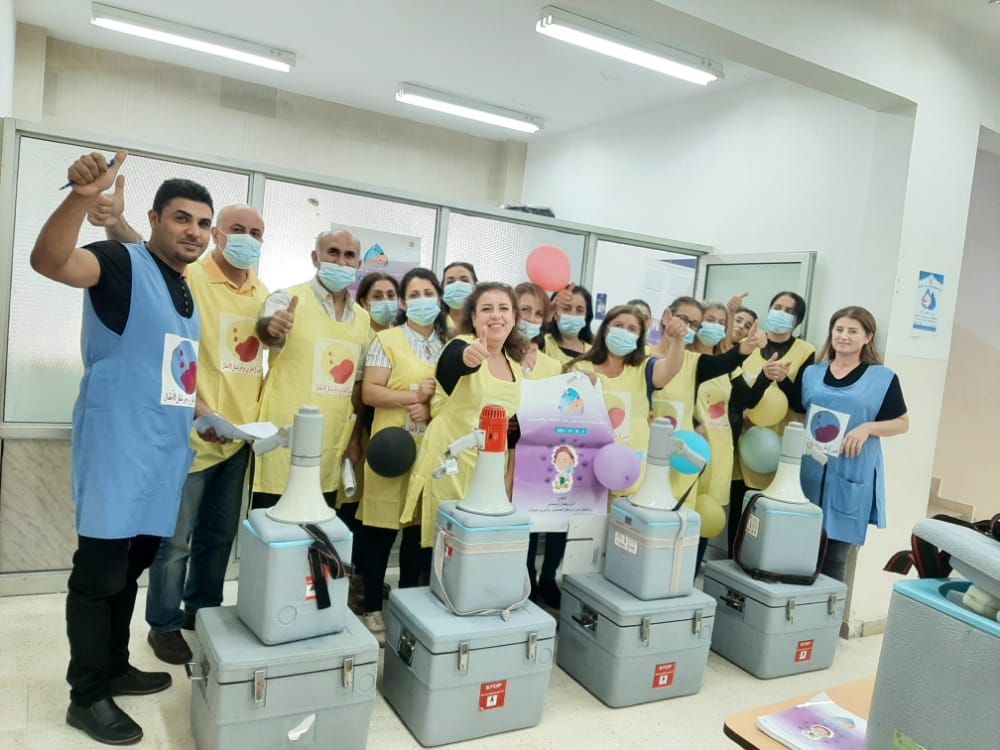
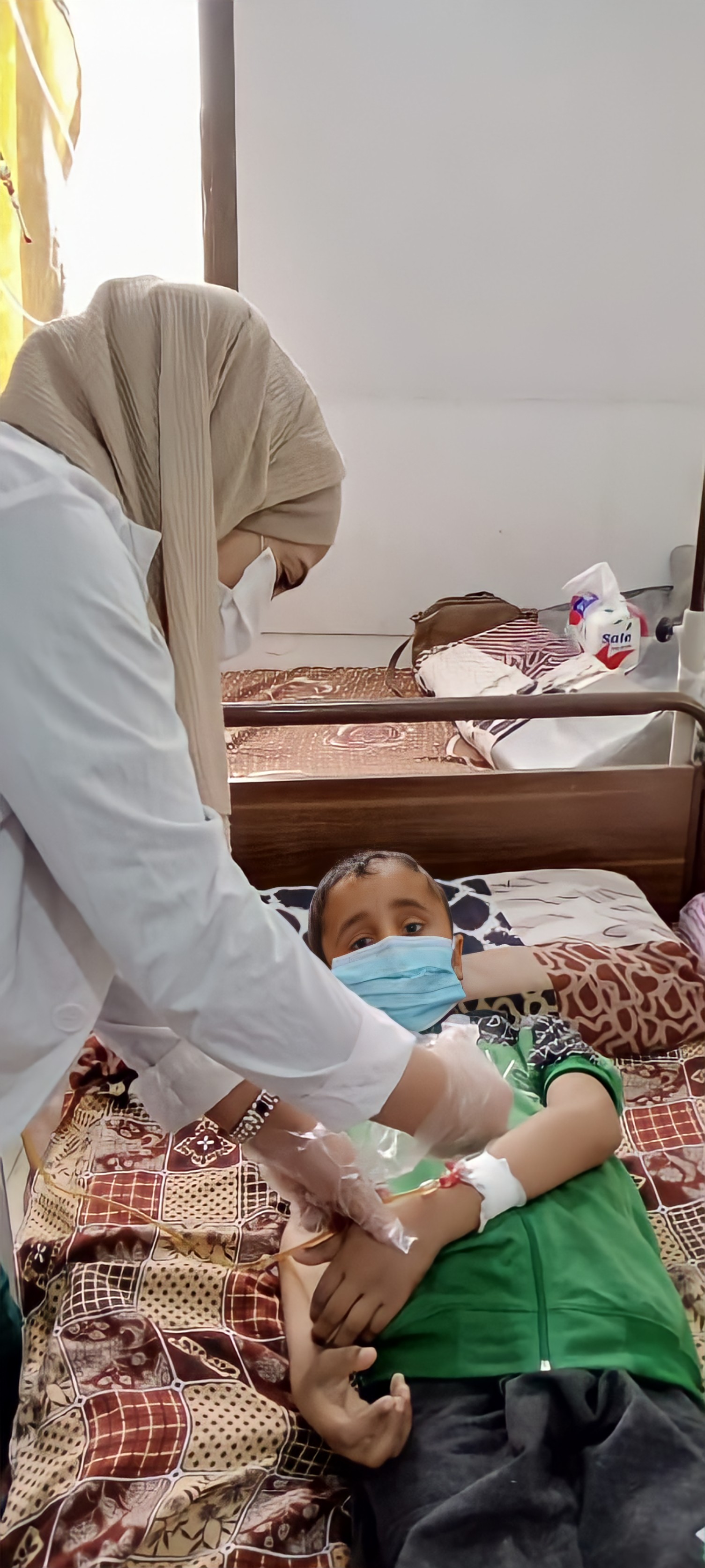
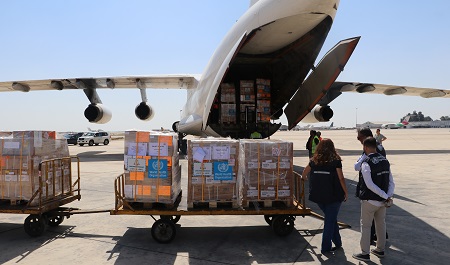
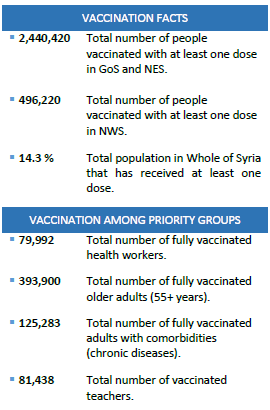 Summary
Summary